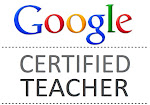Do you know who created our first public libraries?

If you guessed Andrew Carnegie, you are correct. Andrew Carnegie was born on November 25, 1835, in Dunfermline, Scotland.
Young Andy, as he was, called, moved to the United States with his family in Pittsburgh. A few years after the journey, Samuel Morse invented the telegraph. Around the age of twelve, Andrew got his first job as a telegraph messenger.
As an adult, Andrew Carnegie was promoted to a telegraph officer. With the money he made, Andrew was soon able to buy a house. Later, he quit his job to explore other types of work and joined a train company that built their trains with beds so that passengers could rest on long trips.
Later in his life, Andrew moved to New York and started the Carnegie Steel Company. He started the company when he learned that steel was much easier to use and get than iron. Carnegie began making a big profit.
Further, in his life, Carnegie started the system of public libraries because he thought people should be more educated. I think that Andrew Carnegie changed the world because if there were no libraries, I may have never checked out the biography that I used to give you all this wonderful information. In addition, Andrew Carnegie libraries gave everyone the opportunity to read, even if they could not afford to buy a book.
Here is a hyperlink to a time line of Carnegie's life.
Below is a video presentation of my sculpture.





















Dear Jonah,
ReplyDeleteWhat a cool report! It sounds like Andrew Carnegie was a brilliant man. If it weren't for him we wouldn't of had our school library. (Even though someone else probably would've thought the same thing as Andrew.)
Great job,
James
Dear Jonah,
ReplyDeleteAndrew Carnegie lived in a lot of places like New York and Germany. I love going to the the library and now
I know who made the that possible.
From,
Sean
Dear Jonah,
ReplyDeleteYou have an excellent report here. I think Carnegie’s life is quite interesting. He started out a poor immigrant and became one of the richest entrepreneurs in the world. (Remember the word entrepreneur from Social Studies?) I read that he always did his work to the best of his ability and looked to take on more responsibility when he could. He even took advantage of a lending library to better himself and gain knowledge. As you point out, many Americans benefited from the philanthropic work he did later in his life.
I also enjoyed looking at your sculpture presentation. Your time spent with clay on Fun Friday really paid off. You are quite a sculptor!
Sincerely,
Mrs. Yollis